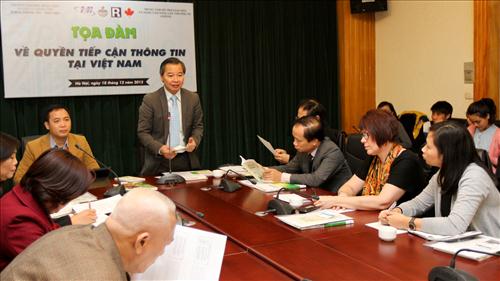
Attending the seminar were Ms. MoniQue Lamouveux, Counselor for Politics and Culture and Information, Embassy of Canada; Ms. Nguyen Thi Kim Hoa, Director of the Department of Criminal and Administrative Law, Ministry of Justice; Dr. Pham Tat Thang, Standing Member, Committee for Education of Youth and Children of the National Assembly; Dr. Le Van Viet, Former Deputy Director, Vietnam National Institute; Ms. Ngo Thi Thu Ha, Deputy Director of the Center for Education Support and Capacity Building for Women; Associate Professor Dr. Pham Quang Minh, Vice Rector of the University of Social Sciences and Humanities, VNU, along with many researchers, lecturers and students of the University.
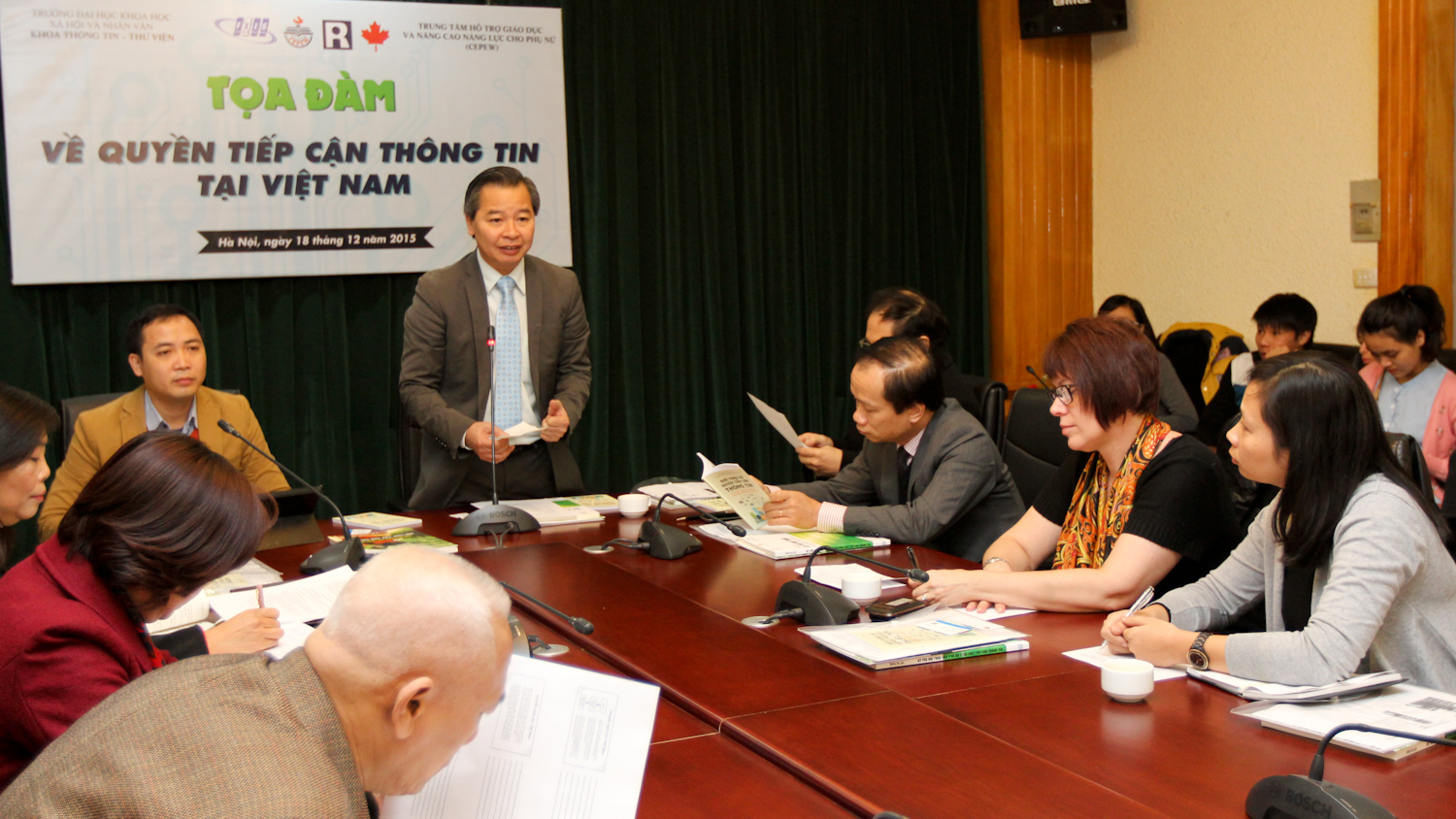
Assoc. Prof. Dr. Pham Quang Minh, Vice Principal of the School delivered the opening speech at the seminar.
In his opening speech, Associate Professor Dr. Pham Quang Minh, Vice Principal of the University, highly appreciated the content of the topic of the discussion. This is a hot topic, attracting the attention and interest of society.
Today, information is power, information is strength, information is knowledge. If we have this knowledge, this power, we can control the future. However, we also need to evaluate how to use that information? What are the regulations on access? How to access? Use that information? For what purpose?
Currently, our National Assembly is discussing to issue a bill on the right to access information. The opinions of today's discussion will have important values, advising and contributing to state management agencies to complete the bill. Promoting the process of transparency in the issue of access to information and information exploitation in Vietnam, Associate Professor, Dr. Pham Quang Minh shared.
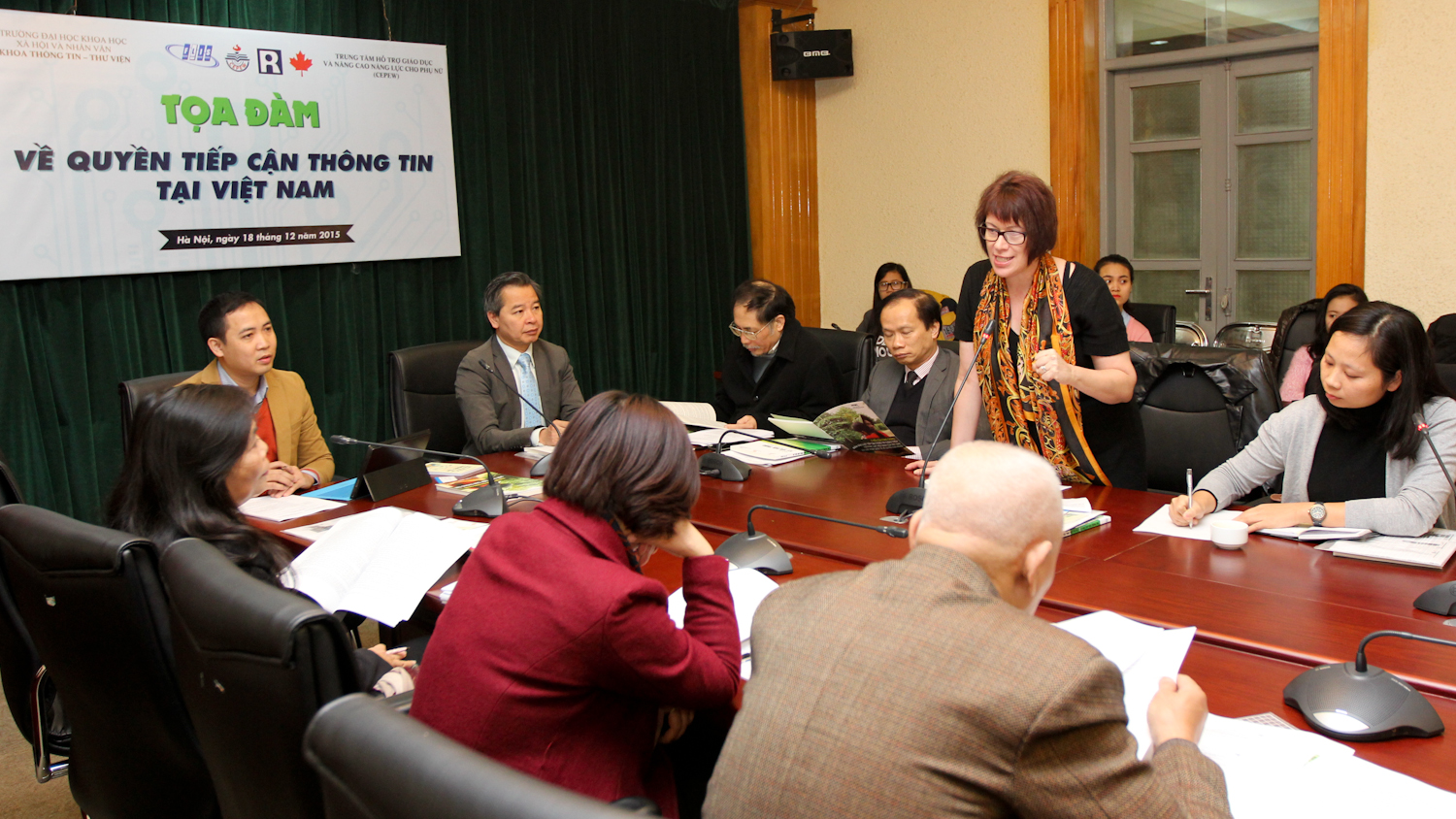
Ms. MoniQue Lamouveux, Political and Cultural Counselor, Embassy of Canada shared at the seminar
Sharing the same view, Ms. MoniQue Lamouveux, Counselor for Politics and Information and Culture, Embassy of Canada, shared that the seminar was held at a time when the Vietnamese Government is paying great attention to human rights and the right to access information.
She hopes that the seminar will bring about important discussions on the right to access information, ensuring the right to access information and accessing information safely. This is one of the roles and responsibilities of the future generation of young Vietnamese people.
With the presentation "Introducing the standards on the right to access information in international law and the 2013 Constitution and sharing the process of building the Law on Access to Information in Vietnam", Ms. Nguyen Thi Kim Thoa, Director of the Department of Criminal and Administrative Law, Ministry of Justice said: stemming from the mindset that the state holds a lot of important information, why not share information with the people - the subjects in need, many countries have issued laws on access to information, (or freedom of information laws or laws on providing public information, laws on providing information of state administrative agencies...).
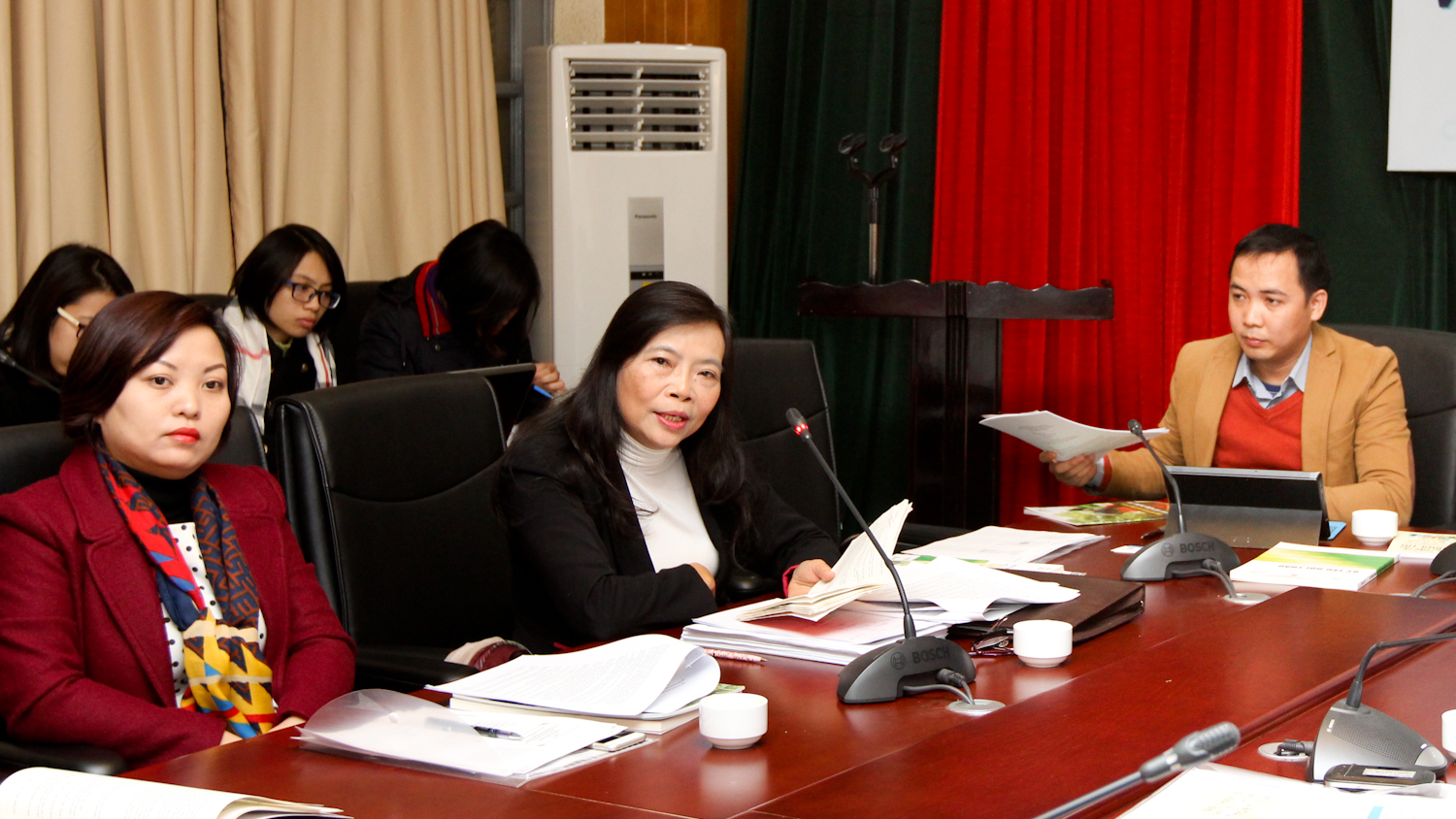
Ms. Nguyen Thi Kim Thoa, Director of the Department of Criminal and Administrative Law, Ministry of Justice, presented a paper at the seminar.
Of course, the information provided varies from country to country, depending on the legal system and the concept of information types.
Basic information directly related to people's lives and scientific research is accessible to all people.
However, according to Ms. Nguyen Thi Kim Thoa, every country has dark areas in providing information. That is confidential information, for example, secrets related to private life, production and business, national security and defense...
This dark area also has information considerations, according to Ms. Nguyen Thi Kim Thoa, in the dark area there are also half-dark and half-light areas - balanced areas where if the community benefit is higher, it will be provided.
She gave an example of a business production case, if that business secret affects the life of the community, then the business production secret will be secondary to public health.
Or the consideration of information to reassure the people about Slovakia's defense secrets. When people raised information about corruption in the case of this country buying 2 military aircraft. Finally, the government decided that the people should be provided with all related documents, expenses and purchase contracts.
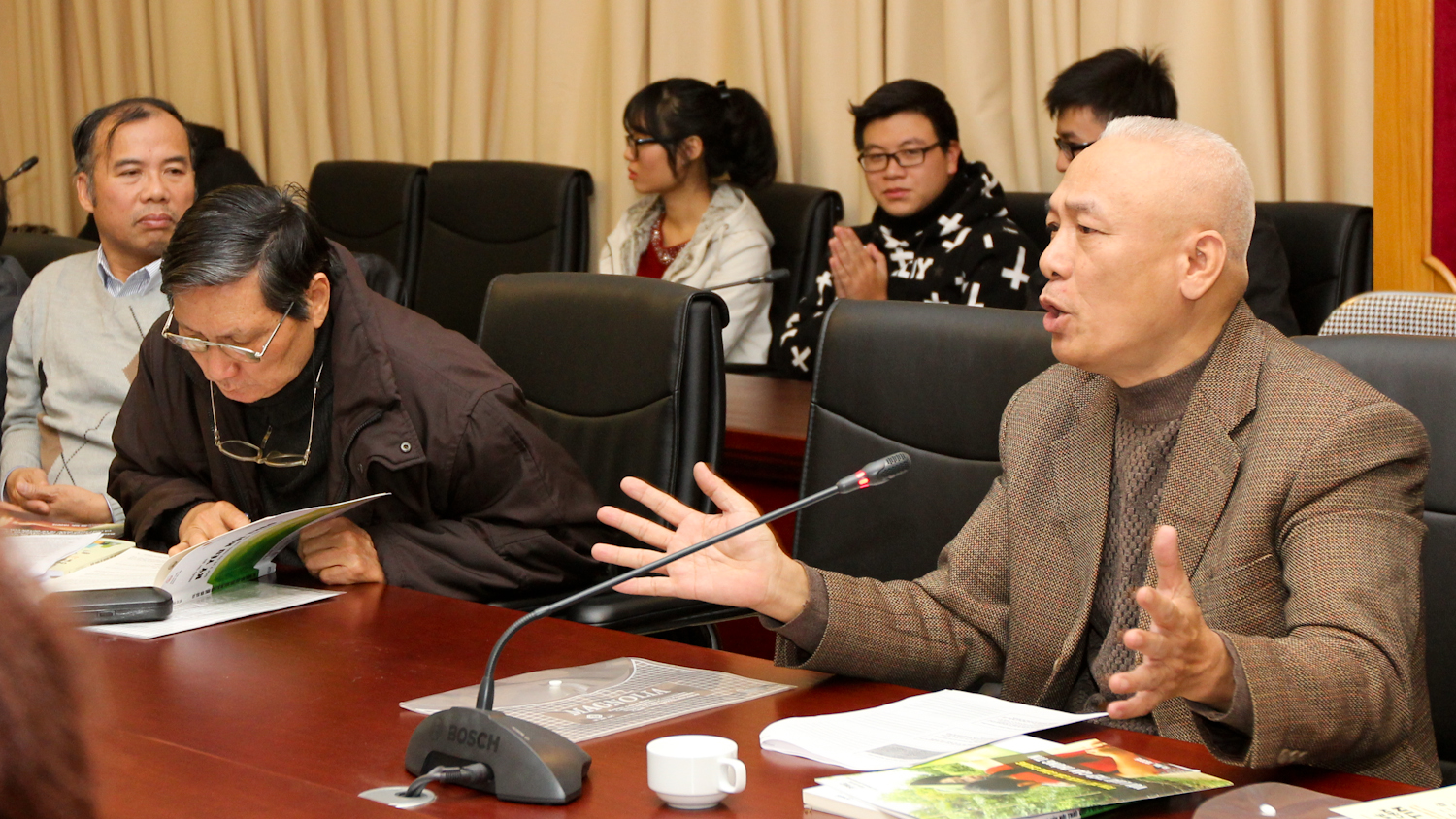
Prof. Dr. Nguyen Dang Dung presented a paper on the topic "India's Freedom of Information Law and Experience for Vietnam"
Sharing his experience in researching India's freedom of information law, Professor Nguyen Dang Dung said that passing an information law is difficult but implementing it is even more difficult.
The lesson for Vietnam is that the law on freedom of information or the law on access to information must be written in the form of human rights. Rights for everyone in a universal way. Therefore, the draft needs to pay attention to people from disadvantaged groups when exercising this right.
Passing and implementing laws is an arduous struggle between the people and the executive government. No government wants to implement these rights of the people. To be successful, civil society organizations need to unite and persistently request the government to pass and strictly implement the law, shared Prof. Dr. Nguyen Dang Dung.
The seminar also listened to and discussed the following topics: Sharing the results of public consultation on the Law on Access to Information in Vietnam, presented by Ms. Ngo Thi Thu Ha, Center for Education Support and Capacity Building for Women CEPEW; discussing international experience on the mechanism to protect the right to access information, presented by Ms. Nguyen Thanh Phuong, Center for Support of Social Development Programs;...
The seminar on the right to access information in Vietnam is the opening activity for the project "Raising understanding of youth participation in promoting the right to access information in Vietnam". The project is implemented by the Faculty of Library Information, University of Social Sciences and Humanities, VNU in collaboration with the Center for Education Support and Capacity Building for Women (CEPEW).
The project is expected to last from now until the end of February 2016 with a number of activities aimed at the following goals: Raising awareness of the right to access information for lecturers and students of the University of Social Sciences and Humanities, VNU; Establishing a core group of young people with adequate knowledge and skills to promote learning and application of access to information for young people and students in Hanoi; Establishing a model of providing information based on human rights for the Faculty of Information Technology to provide information related to the Faculty's students and spreading it to other faculties throughout the university.
Author:Hoai An
Newer news
Older news